 by our College Data Analytics Team
by our College Data Analytics TeamHere, you'll find out more about the major, including such details as the number of graduates, what degree levels are offered, ethnicity of students, average salaries, and more. In addition, we cover how UNLV ranks in comparison to other schools with ee programs.
Jump to any of the following sections:
The bachelor's program at UNLV was ranked #192 on College Factual's Best Schools for ee list. It is also ranked #2 in Nevada.
| Ranking Type | Rank |
|---|---|
| Best Electrical Engineering Bachelor’s Degree Schools | 187 |
| Best Electrical Engineering Schools | 192 |
During the 2021-2022 academic year, University of Nevada - Las Vegas handed out 38 bachelor's degrees in electrical engineering. This is an increase of 15% over the previous year when 33 degrees were handed out.
In 2022, 5 students received their master’s degree in ee from UNLV. This makes it the #175 most popular school for ee master’s degree candidates in the country.
In addition, 4 students received their doctoral degrees in ee in 2022, making the school the #110 most popular school in the United States for this category of students.
EE majors who earn their bachelor's degree from UNLV go on to jobs where they make a median salary of $77,254 a year. Unfortunately, this is lower than the national average of $77,687 for all ee students.
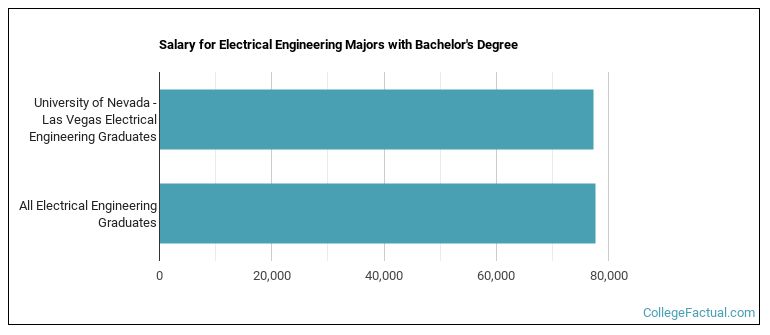
In 2022-2023, the average part-time undergraduate tuition at UNLV was $551 per credit hour for out-of-state students. The average for in-state students was $263 per credit hour. The following table shows the average full-time tuition and fees for undergraduates.
| In State | Out of State | |
|---|---|---|
| Tuition | $8,354 | $25,307 |
| Fees | $788 | $792 |
| Books and Supplies | $1,240 | $1,240 |
| On Campus Room and Board | $12,072 | $12,072 |
| On Campus Other Expenses | $4,050 | $4,050 |
Learn more about UNLV tuition and fees.
All of the 38 students who graduated with a Bachelor’s in ee from UNLV in 2022 were men.
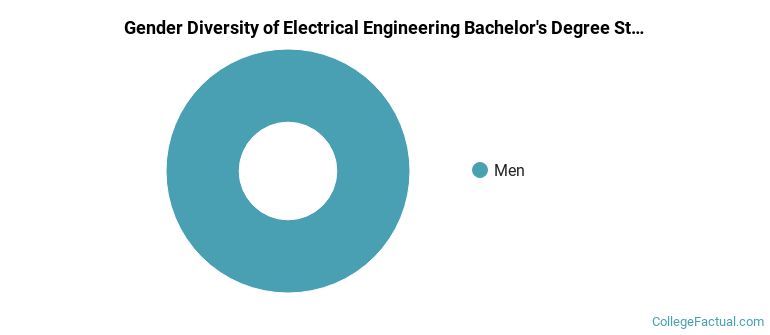
The following table and chart show the ethnic background for students who recently graduated from University of Nevada - Las Vegas with a bachelor's in ee.
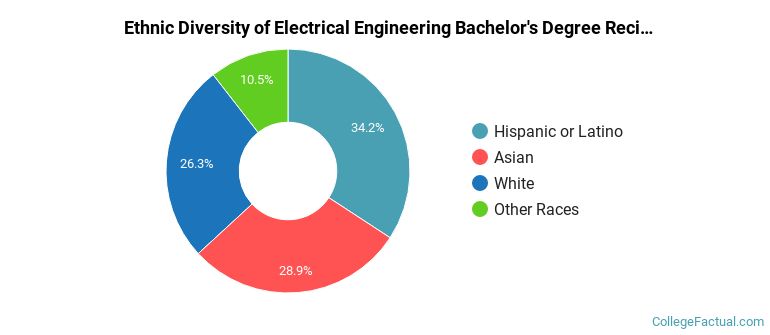
| Ethnic Background | Number of Students |
|---|---|
| Asian | 11 |
| Black or African American | 0 |
| Hispanic or Latino | 13 |
| White | 10 |
| Non-Resident Aliens | 0 |
| Other Races | 4 |
UNLV does not offer an online option for its ee bachelor’s degree program at this time. To see if the school offers distance learning options in other areas, visit the UNLV Online Learning page.
Of the 8 students who graduated with a Master’s in ee from UNLV in 2022, 88% were men and 13% were women.
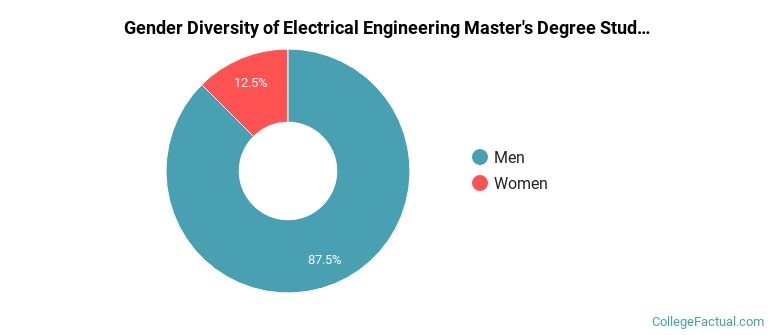
The following table and chart show the ethnic background for students who recently graduated from University of Nevada - Las Vegas with a master's in ee.
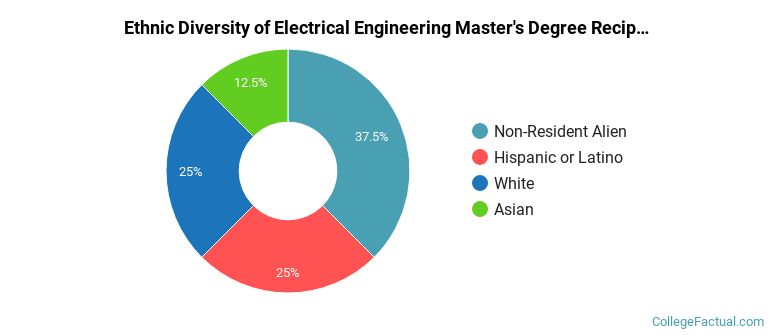
| Ethnic Background | Number of Students |
|---|---|
| Asian | 1 |
| Black or African American | 0 |
| Hispanic or Latino | 2 |
| White | 2 |
| Non-Resident Aliens | 3 |
| Other Races | 0 |
Take a look at the following statistics related to the make-up of the ee majors at University of Nevada - Las Vegas.
| Related Major | Annual Graduates |
|---|---|
| Mechanical Engineering | 113 |
| Civil Engineering | 75 |
| Computer Engineering | 34 |
| Other Engineering | 7 |
| Aerospace & Aeronautical Engineering | 6 |
More about our data sources and methodologies.